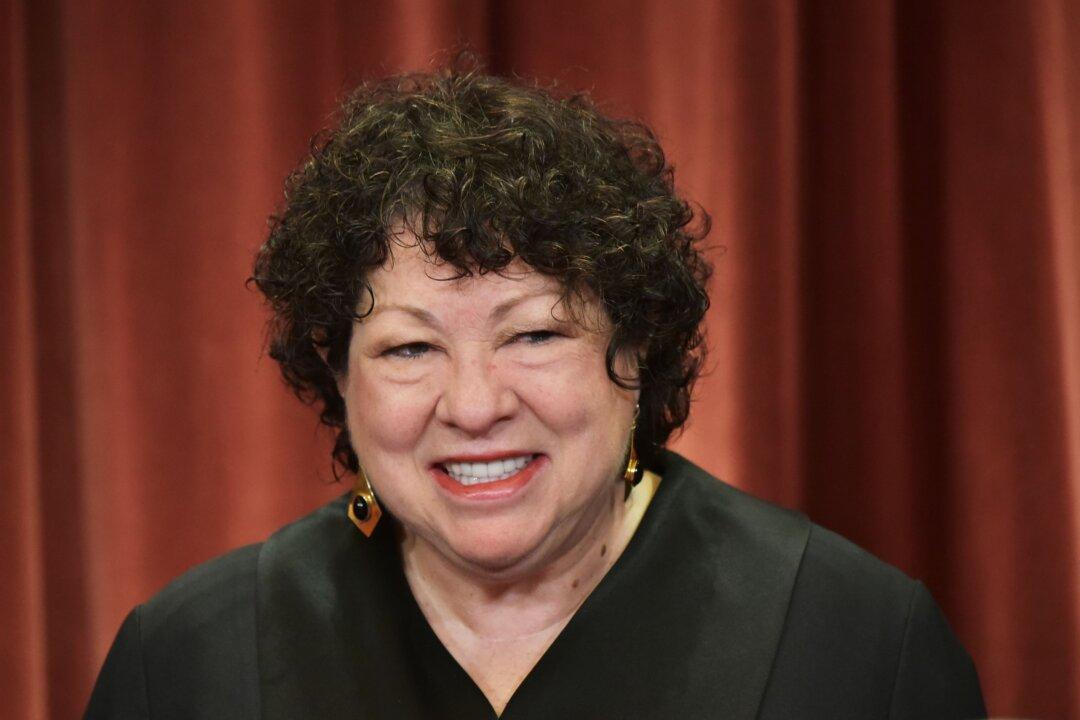Justice Sonia Sotomayor has recused herself from one of the “faithless electors” cases pending before the Supreme Court because of her friendship with one of the parties involved in the lawsuit.
The clerk of the court informed the parties in a letter on Tuesday that Sotomayor would not participate in the case that will decide the enforceability of Colorado laws that threaten to penalize a presidential elector if they refused to vote for the candidate they pledged to support, commonly referred to as “faithless electors.” The case is cited as the Colorado Department of State v. Michael Baca, et al.




